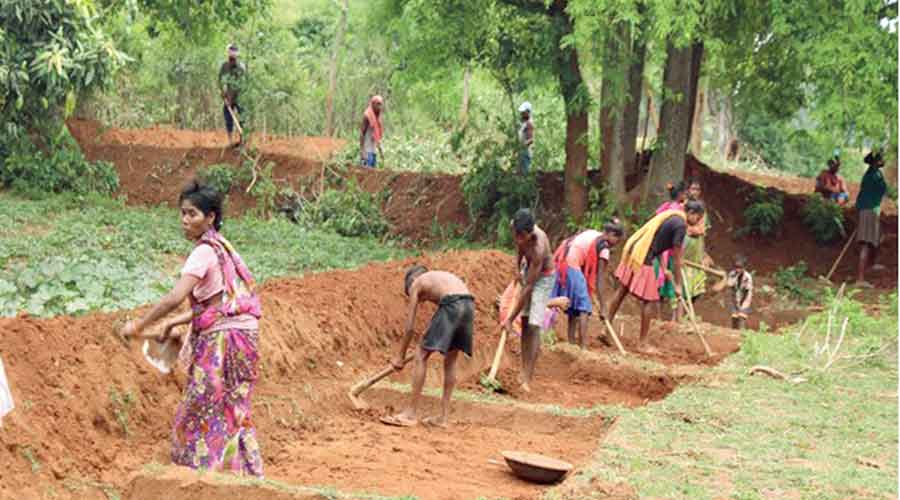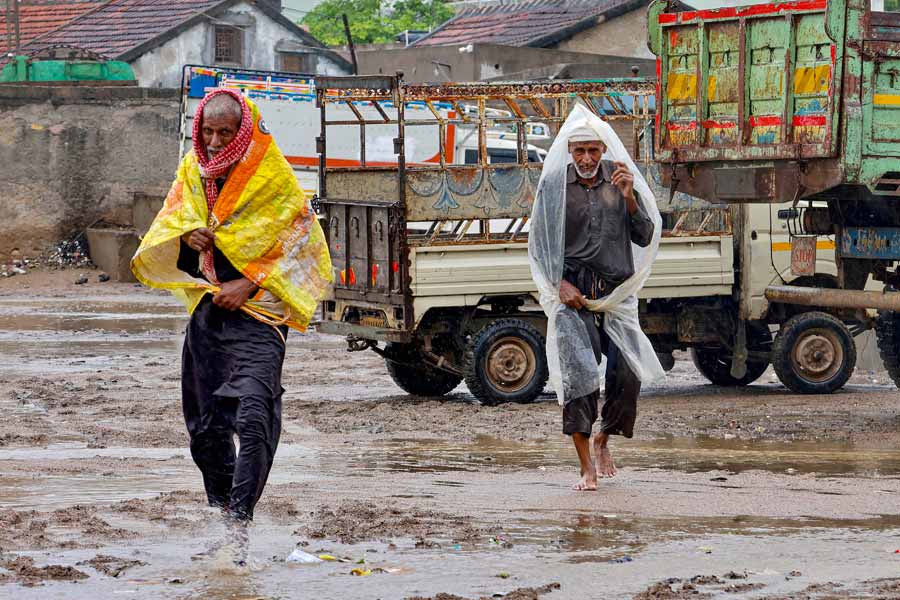A civil society group has demanded an extra 50 days’ work per person under the rural job guarantee scheme over and above the provision of up to 100 days’ work per family every year.
Under the NREGA Sangharsh Morcha’s proposal, communicated in a letter to Prime Minister Narendra Modi, a family with one job card holder will be entitled to 150 days’ work while one with two will get 200 days’ work and so on.
The Morcha has sought the relief only for financial year 2021-22, citing the pandemic-fuelled rise in unemployment.
Debmalaya Nandi, a social activist associated with the Morcha, said the government must make additional fund allocations for the scheme, implemented under the Mahatma Gandhi National Rural Employment Guarantee Act.
“The scheme’s implementation has been poor in many states because of erratic funds release by the Centre. The government must make additional allocations and increase the permissible workdays,” Nandi said.
According to the job scheme’s website, more than 1.07 lakh households had exhausted their 100 days by June 14, that is, 75 days into the new financial year.
Nandi said that various government and private projects had stopped or been drastically reduced in rural areas, drying up employment opportunities.
He said the joblessness across sectors had increased the demand on the rural job scheme, turning it into families’ main source of livelihood.
“This will continue till the start of the rabi season (in November),” Nandi said, referring to the winter when more labour-intensive crops are grown, necessitating the hiring of farm hands.
In its letter, the Morcha has quoted data published by the Centre for Monitoring Indian Economy (CMIE), a private research group that surveys the job situation in the country.
According to the CMIE, the monthly unemployment rate in the country in May this year was 11.9 per cent — 14.73 per cent in urban areas and 10.63 per cent in rural areas — with over 1.5 crore jobs lost that month.
With businesses shut, jobs lost and salaries slashed, many people are pledging their gold savings to borrow money for essential expenditures and medical emergencies.
According to the latest Reserve Bank data, loans against gold have jumped 82 per cent since March last year.
Migrant labourers are struggling to find work because of local lockdowns.
A survey by the Stranded Workers Action Network, a civil society group, between April 21 and May 31 found that 82 per cent of the respondents had at most two days’ rations left and 76 per cent had at most Rs 200 left with them. Swan had surveyed 1,396 workers’ groups made up of 8,023 people.










